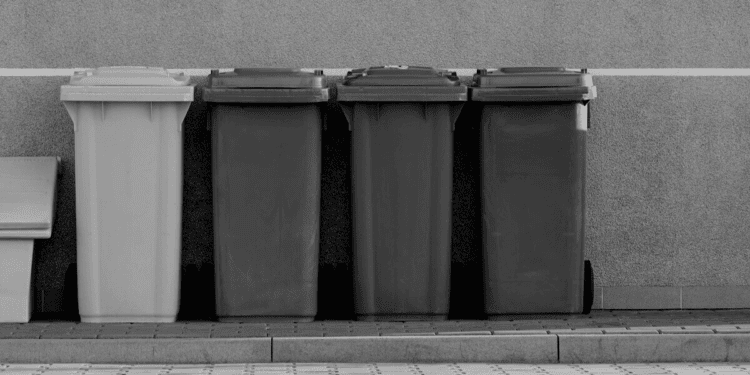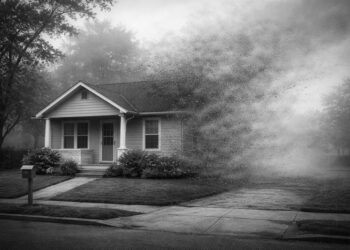The 2020 Tokyo Olympic Games provided not just glory for athletes, but an important lesson for those who care about recycling: The 5,000 medals awarded at the games were all created by extracting gold, silver, and bronze from recycled small electronic devices — 78,985 tons of them, including 6.21 million cellphones. This should not just be considered an interesting factoid but, rather, a reminder to all American municipalities that their recycling programs are most likely out of date.
US city officials are, in fact, recycling the wrong things.
The assumptions behind the collection of cans, bottles and paper have been overtaken by events. Since the creation of Earth Day in 1970, proponents of recycling believed that collecting and re-selling these materials would save cities money — by realizing revenue and through “avoided costs” of not paying to send them to landfill.
For years, China was the major market for recyclables, and Americans were happy to provide cheap materials for Chinese manufacturing until 2017, when China announced it was banning the import of “foreign trash.” Since then, the least expensive municipal choice for disposal of any and all trash has been the landfill. Far cleaner landfills than in the old days, by the way. To the extent that there are still markets for recyclables, taxpayers are subsidizing them through the substantial cost of separation and collection. Even not counting that cost, most recycling loses money for municipalities. A 2020 study found that the value of materials currently collected for recycling has fallen by 41 percent since 2017 and that some, like mixed paper and glass, may have a negative value. As one official noted: “Based on the current economics of it, it makes more sense to use landfills. I think that’s the case across the country or across the world, for that matter.”
Tokyo has shown us today a better way by capturing the now-wasted value of valuable metals (including rare earth metals mined in China) that are found in discarded electronics. Electronic waste (or e-waste) is the trash created by discarding computers, televisions, cell phones, and Fitbits.
Most current recycling programs overlook a portion of the e-waste stream that is both toxic when buried and valuable when reclaimed. It is up to local governments to re-assess trash as a new kind of mine — and separate the materials within it that are valuable, especially electronics.
A February 2020 analysis of e-waste found 56 elements in electronic devices routinely sent to dumps. Included were “14 rare earth elements, six platinum group metals, 20 critical metals, and 16 other elements, including some precious metals.”
The study also found that just one kilogram of mixed e-waste — that is, hard drives, cell phones, and computers — separated from the general municipal waste stream — were worth $168. A similar amount of hard drives isolated for recovery were valued at $454.
The study also found that just one kilogram of mixed e-waste — that is, hard drives, cell phones, and computers — separated from the general municipal waste stream — were worth $168. A similar amount of hard drives isolated for recovery were valued at $454.
Today, it is beneficial for municipalities to recycle these materials. In other words, we should only separate and collect materials that have an economic value. If glass becomes in short supply, only then does it make sense to separate and recycle it. Otherwise, we’re all engaged in what’s commonly called “wish-cycling,” the practice of recycling things that no one else wants.
While most local governments remain stuck in the past, an encouraging project by a little-known group of US Department of Energy (DOE) planners offers hope for a recycling future. The DOE’s version of the Defense Department’s famous DARPA, the Advanced Research Project Agency (ARPA-E), is working on “research programs focused on [a] highly energy efficient conversion of e-waste into usable manufacturing material.” While Japan used a smelting process to salvage the metal for its Olympics medals, DOE envisions a new generation of incinerators whose ash would be mined for valuable heavy metals, for example, instead of having to import these materials from China or other world conflict zones. As an ARPA-E scholar explains, we are “interested not only in extracting valuable materials from waste ash but also in recycling that ash into other materials. By using the incineration process to extract critical materials, WTE (waste-to energy plants) could become an essential component in repurposing our trash.”
These are exactly the kind of far-sighted ideas that government infrastructure investments should include: new versions of the New Deal’s rural electrification program that — with testing and tweaking — could cost less, become affordable, and allow local municipalities to adopt them.
The Olympic Committee, under pressure to demonstrate its commitment to sustainability in its use of materials, has, through its e-waste recycling project, done much more than stage a publicity stunt.
They have pointed the way toward a more sustainable future.









